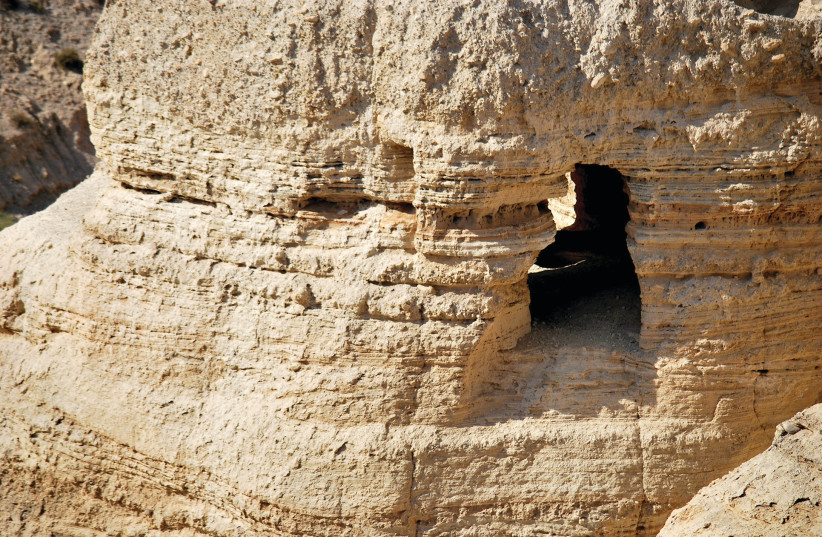UNESCO’s World Heritage Committee is expected to list the site of ancient Jericho, which is now an archaeological park located in the modern Palestinian city that still bears the biblical name, as being in the "state of Palestine."
The city is located in a section of the Jordan Valley, also known as Area A of the West Bank, which is under the auspices of the Palestinian Authority.
It is one of 53 natural and cultural sites the World Heritage Committee will be voting to include on its global list when it convenes this September in Saudi Arabia.
UNESCO has recognized Palestine as a state since 2011. It has since inscribed three other West Bank properties to it: the Church of the Nativity in Bethlehem in 2012; the ancient terraces of Battir in 2014; and Hebron’s Old Town, including the Tomb of the Patriarchs, in 2017.
The PA has filed requests for UNESCO’s World Heritage Committee to recognize 13 other sites during future meetings. They include Sebastia, the site of the former capital of ancient northern Israel; and the Qumran caves, where the Dead Sea Scrolls were discovered.

The World Heritage Committee has inscribed nine sites to Israel, the last of which was Maresha Caves in Beit Guvrin-Maresha National Park in 2014.
The inscription of additional Israeli sites into the World Heritage Program has been complicated by political considerations.
Israel's relations with UNESCO
Israel and the United States both halted their annual dues to UNESCO in 2011 to protest the organization’s recognition of Palestine as a state. Both countries lost voting rights in the organization as a result in 2013. They withdrew at the end of 2018 to protest the organization’s anti-Israel bias, a move that went into effect in 2019.
The US rejoined UNESCO this summer, and first lady Jill Biden traveled to the organization’s headquarters in Paris in July to celebrate America’s renewed ties with the organization.
Israel has not made any public statements about its intent to rejoin UNESCO. Its absence from the organization complicates any work on the potential inscription of further World Heritage Sites.
Foreign Minister Eli Cohen, however, did visit UNESCO headquarters in Paris last month and met there with Director-General Audrey Azoulay.
The meeting took place at Cohen’s request and that he “raised the issue of Israel’s return to UNESCO,” UNESCO said, without elaborating.
Azoulay “reminded him of UNESCO’s universal vocation and said that the decision to return was a matter for the Israeli authorities,” it said.
After the Foreign Ministry said Cohen had asked Azoulay for UNESCO to work with Israel to preserve ancient Jewish biblical sites in the West Bank, even though UNESCO considers that area as part of the boundaries of a Palestinian state.
“I approached the secretary-general of UNESCO and suggested that she cooperate with Israel and other countries in the preservation of Jewish heritage sites in Israel and around the world,” Cohen said.
“Jewish heritage sites in Judea and Samaria were damaged and looted, and UNESCO, which is responsible for preserving heritage sites worldwide, must act to prevent damage to sites that represent the history of the people of Israel,” he told Azoulay
Cohen did so after the government allocated NIS 120 million last year to embark on a wide-ranging plan to protect ancient Jewish archaeological sites in Area C of the West Bank, which is under IDF military and civilian control.
Although Israel has not rejoined UNESCO, its officials are still invited to attend the World Heritage Committee meeting because it remains a state party to the World Heritage Convention.
Israel and Saudi Arabia do not have diplomatic relations. Saudi Arabia, however, signed a host-country agreement with UNESCO last month in which it formally committed to allowing all state parties to the convention to attend, including Israel.
Should Israeli officials go to Saudi Arabia, they would do so at a time when Washington and Riyadh are discussing a security deal that would lead to the normalization of ties between the kingdom and Israel.
The World Heritage Committee is made up of 21 voting members: Argentina, Belgium, Bulgaria, Egypt, Ethiopia, Greece, India, Italy, Japan, Mali, Mexico, Nigeria, Oman, Qatar, Russia, Rwanda, St. Vincent and the Grenadines, Saudi Arabia, South Africa, Thailand, and Zambia.
Jericho prides itself on being the oldest most continuously inhabited city in the world, dating back more than 10,000 years, and for being at the lowest point below sea level of any municipality. It is most famous for the biblical story in which Joshua and the ancient Israelites brought its walls down by marching around it and blowing rams’ horns.
The PA in its application to UNESCO, which it submitted in 2020, wrote: “The long and diverse history of Jericho narrates the undisputed story of 10.000 years of human civilization. It witnessed some of the most significant cultural milestones of human history, is one of the oldest towns on Earth, and is unparalleled in all human history. Jericho is a unique example of well-documented settlements of different development stages of human civilization.”
The PA Tourism Ministry runs an archaeological park at the site of the most ancient remains of the city. The IDF, however, bars Israelis from visiting Area A, and they cannot visit the site.
